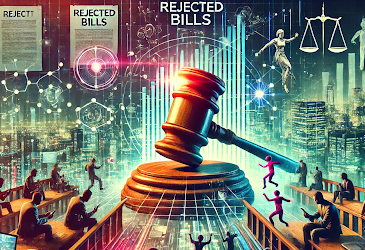SPGA Hails Legislative Defeats of Sweepstakes Game Bans in Several States

The Social and Promotional Games Association (SPGA) has welcomed the defeat of several recent legislative efforts targeting sweepstakes and social games in the United States, describing the developments as a significant win for digital entertainment and consumer rights.
Multiple State Bills Fail to Pass
Legislative proposals aimed at banning or restricting sweepstakes-style games failed in three U.S. states this week, marking a turning point in the national conversation about digital promotional gaming. In Arkansas, House Bill 1861 was formally withdrawn, while Maryland's Senate Bill 0860 failed to proceed to a vote. A similar fate met a previous bill in Mississippi.
“These bills shared the same fatal flaw: no facts and no foundation. Legislators are consistently rejecting efforts to criminalize safe, digital entertainment enjoyed by millions of adults across the U.S.,” stated an SPGA spokesperson. The association argues that these legislative defeats show growing reluctance among lawmakers to embrace broad and vague regulations that could negatively impact consumers and stifle innovation.
Criticism of Maryland and Arkansas Proposals
Maryland’s SB0860 sought to outright ban sweepstakes gaming but failed to provide credible evidence of consumer harm or links to problem gambling. Arkansas’s HB1861 proposed tighter restrictions on dual-currency online games and would have granted exclusive control of such games to licensed casino operators. Neither bill advanced to a vote in their respective state legislatures.
The SPGA criticized both bills for being out of step with modern consumer behavior and economic realities. “When legislation threatens everyday perks from airlines, hotels, and your local coffee shop, it’s clear the bills aren’t just misguided, they’re dangerously out of touch,” the spokesperson added, referencing how such proposals could have disrupted common rewards programs that use promotional game mechanics.
Broader Industry and Economic Impact
According to the SPGA, the failed legislation posed risks far beyond consumer entertainment. Game developers, payment platforms, software vendors, and financial institutions could have all been affected. The association warned that overly broad laws could cost thousands of jobs and disrupt a thriving digital economy.
“We’re continuing to fight for the millions of Americans who enjoy these games responsibly on their phones,” said the association, reinforcing its commitment to responsible enjoyment and modern regulatory approaches. The SPGA continues to call for informed policymaking that balances consumer protection with industry growth and innovation.
Future Legislation Under Scrutiny
Despite these recent setbacks for anti-sweepstakes legislation, new bills continue to emerge. Louisiana’s Senate Bill 181, introduced earlier this year, is the latest measure drawing concern from the SPGA. The organization warns that the bill’s ambiguous wording could wrongly categorize long-standing promotional systems as gambling, potentially putting legitimate business models at risk.
Under current federal regulations, promotional sweepstakes must offer a no-purchase-required entry option, setting them apart from traditional gambling. The SPGA is urging lawmakers to consult with industry representatives before considering any changes to this long-established legal distinction.
With more bills likely to surface in the coming months, the SPGA says it remains vigilant in defending digital consumer experiences and ensuring future laws do not overreach.
Source: SPGA Celebrates Legislative Wins as Sweepstake Game Bans Fail in Multiple States, Real Money Action, April 10, 2025.







